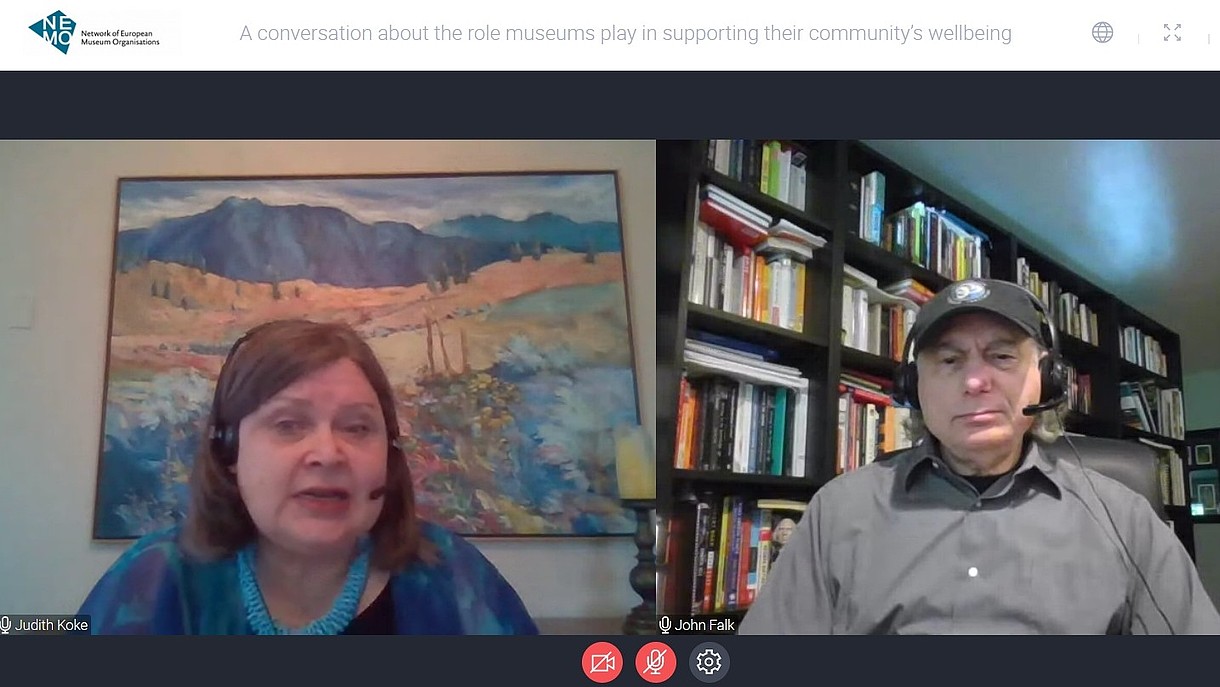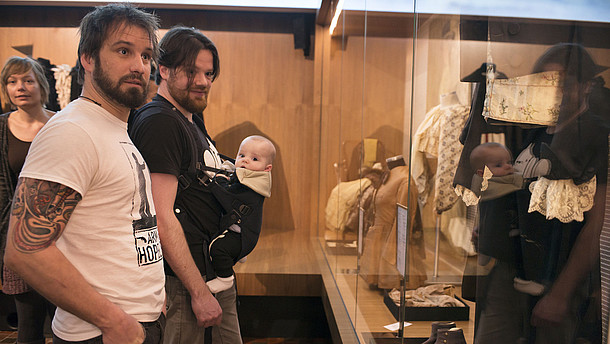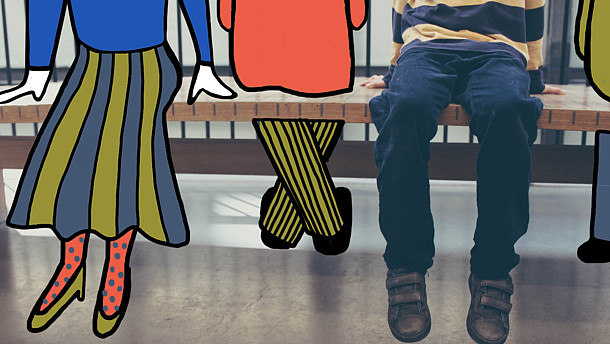Falk and Koke also discussed how the pandemic has changed the way museums engage with their communities. Koke suggested that visits by school classes might never return to the same level or fashion as before the pandemic. She also said that if a museum looks at what the community wants and the mission of the museum, it is quite likely to find several interrelations.
Falk introduced the participants to business models and museums. He argues that if we can understand the real value of museums - enhanced wellbeing - it should be possible to make it understandable to policy makers in terms that they understand - return on investment (ROI). On this topic, Falk has made a pilot study to see if the ROI can be understood in terms of wellbeing. The calculations were based on collected data on museum visitors’ experienced wellbeing after a visit. On average, people felt that their wellbeing increased after a visit and that the feeling of enhanced wellbeing persisted for a week or more. The study concluded that museums deliver significant value and that they compare with virtually any other experience in the community.
In the conversation with the participants, the discussions revolved around concepts such as “return on engagement”, funding models in relation to wellbeing, museum shops in terms of their educational potential, how people learn, museum translations as well as sustainability and climate change.
Mentioned references
The facilitators
Dr. John Falk is Director of the Institute for Learning Innovation and Emeritus Sea Grant Professor of Free-Choice Learning at Oregon State University. He is a leading expert on free-choice learning; the learning that occurs when people have significant choice and control over the what, where and when of their learning. Dr. Falk’s current research focuses on understanding the identity/self-related reasons people utilize free-choice learning settings during their leisure time; studying the community impacts of museums, libraries, zoos and aquariums and helping cultural institutions re-think their educational positioning in the 21st century. His awards include the NARST: A worldwide organization for improving science teaching and learning through research Distinguished Career Award (2016); Oregon State University, University Outreach and Engagement Vice Provost Award for Excellence, Innovation-Partnerships Award (2016).
Judith Koke is a dynamic leader in the free-choice learning ecosystem, with a strong track record of creating organizational change through the integration of visitor research into evidence-based decision-making. Over her career, Judith has served in a wide range of leadership roles; in all of these, she has challenged museums to broaden and deepen their relationships with diverse audiences. Her career combines audience and learning research with museum leadership, and she has been invited to work with numerous museum boards to build a better understanding of the changing role of museums today. Judith has published extensively and taught in numerous graduate programs. Her passion for lifelong learning is currently being channelled into researching museum inclusion for individuals with ASD and developing the next generation of truly effective professional learning opportunities.





